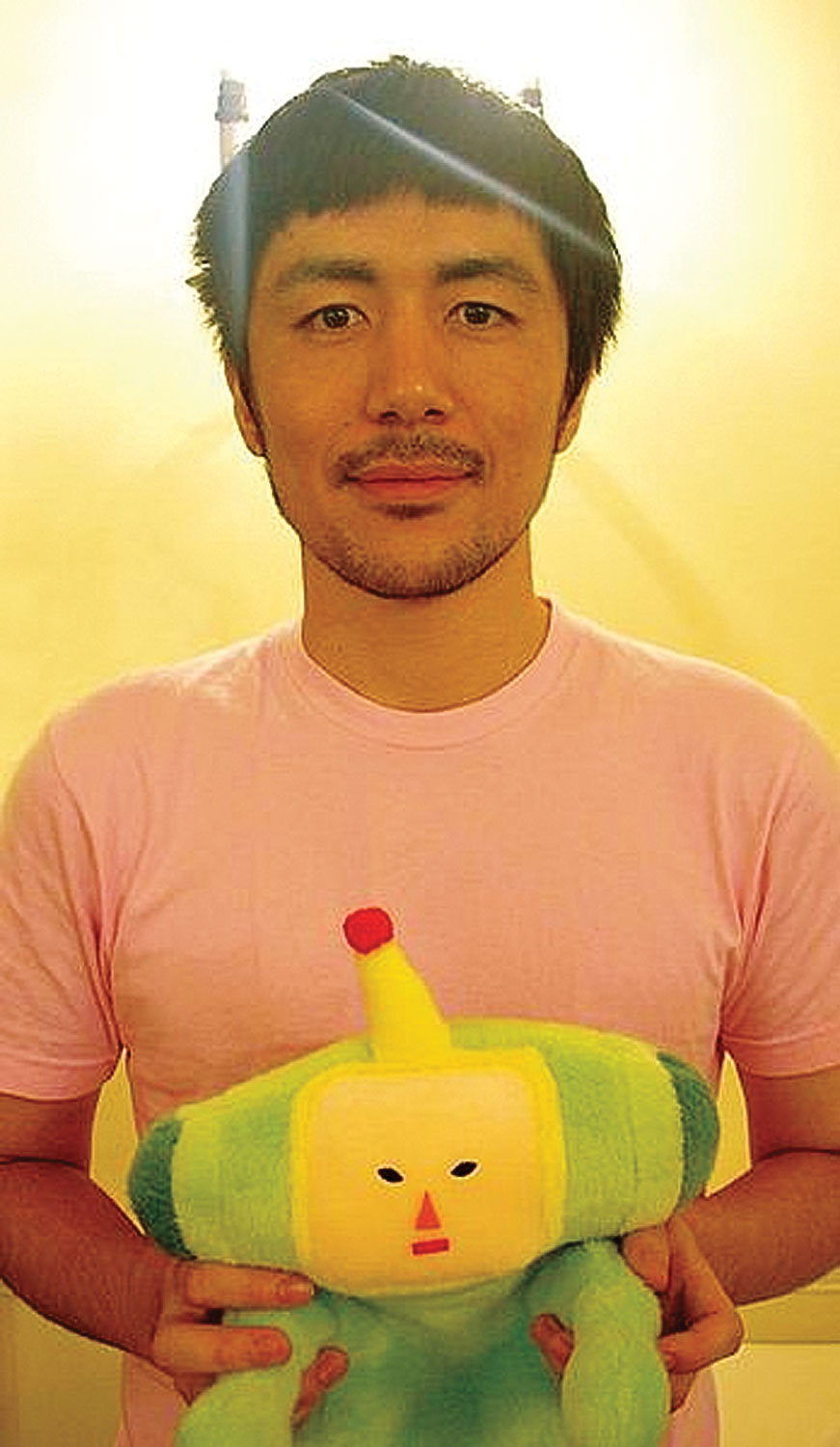
Ernest Reid
Contributor
The developer of some of the most creative video games ever seems fed up with the gaming industry. Keita Takahashi, game designer and playground architect, quit game developer and publisher Namco Bandai two weeks ago, citing creative differences within the video game industry.
Reports on Takahashi’s industry departure raise doubts over the state of game design in Japan and abroad.
The eccentric Takahashi is mostly known for his 2004 sleeper hit Katamari Damacy on the PlayStation 2. In the game, you take on the role of the Prince, and create new stars and planets after your dad, the King of the Cosmos, destroyed them during a night of hard drinking.
Players must roll up objects using a magnetic ball known as the Katamari and from Earth send them into space. The game’s quirky sense of style was a critical and financial success, leading to five sequels on multiple platforms.
Although Takahashi clearly had passion for game design, he seemed frustrated with the industry.
Despite new technologies like motion control and 3D, Takahashi remains cynical of the video game’s future. Speaking to the UK’s Guardian, he said basic game design “remains unchanged since the day video gaming was created.”
He was also wary of trends towards user-created content, calling it “a case of developers not being able to come up with something interesting and new lately.”
When asked about gaming in the next five years, he said, clearly frustrated, “I think nothing will drastically change by then.”
Takahashi said the problem lies in the gaming industry’s global market. “Essentially, everything has become too big,” he said to industry magazine Develop. “The markets are too big, the companies which develop games are too big, and the publishers are too big.”
Because of the huge global market for video games, creativity has been sidelined for business. Takahashi continues, “gamers always expect something to be put in front of them. Content is more driven by [demand] rather than ideas. So we don’t see many people coming out with brand new ideas.”
He’s not alone in expressing doubts. Capcom’s global head of production, Keiji Inafune, caused a scandal at 2009’s game industry convention Tokyo Game Show when he called the Japanese game industry finished. In a recent online interview Inafune said that it’s important “that we realize that we’re behind the Western market now,” and that Japanese developers need to “[become] humble and start learning.”
But it might seem that creative game design is not a focus in Western markets either.
The sequel to Blizzard’s 1998 hit game Starcraft proves it. Starcraft II kept its 12-year-old formula very close to the original and was rewarded with three million in sales in its first month. Furthermore, publisher Activision released five games in the Guitar Hero franchise in 2009 alone. Despite a handful of innovative games that actually make money, like Valve’s Portal in 2007, the West has had its own struggles with video game creativity.
As a creatively minded person, Takahashi doesn’t see why the hit video games are so popular. In an interview with industry website Gamasutra he said “I just can’t perceive where the fun is in recent hit video games. I see nothing in them that resonates with me. Their success leaves me feeling confused.”
His departure from video games allows Takahashi to focus on his playground in Nottingham, England. He now prefers the real world to the virtual one.
“Having something physical makes it easier for me to communicate what I think is fun to people,” Takahashi said.
Takahashi is pessimistic about the future of fun. He believes that children today don’t play anymore; they consume.
“In Japan, people who play games are called ‘users,’” said Takahashi. “I always thought this was bad. Why do we call them ‘users’? Aren’t they supposed to play?”
Keita Takahashi’s idealism and child-like creativity forced him to find other outlets in which he could more happily pursue creative work, and his reluctant retirement is the loss of an emerging talent. Observers wait anxiously to see what Takahashi’s future projects will be.




